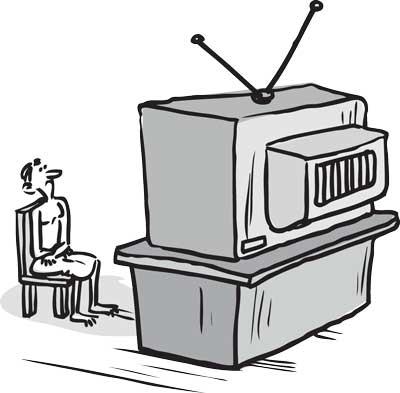Reply To:
Name - Reply Comment
Tomorrow is the United Nations World Day for Audiovisual heritage and the world body in a statement says audio visual documents -- such as films, radio and television programmes, are our common heritage and contain the primary records of the history of the 20th and 21st centuries. Unfortunately, that heritage is now endangered, because sound recordings and moving images can be deliberately destroyed or irretrievably lost as a result of neglect, decay and technological obsolescence.
According to the UN, through initiatives such as the World Day for Audiovisual Heritage and the Memory of the World Programme, the work of preservation professionals is encouraged, to manage the range of technical, political, social, financial and other factors that threaten the safeguarding of our audiovisual heritage.

The United Nations Educational, Scientific and Cultural Organization’s (UNESCO) General Conference approved the commemoration of a World Day for Audiovisual Heritage in 2005 as a mechanism to raise general awareness of the need to preserve and safeguard important audiovisual material for future generations and for urgent measures to be taken to conserve this heritage and ensure it remains accessible to the people now and to future generations.
The 2019 theme is ‘engage the past through sound and image’. Our collective histories are often captured on film, video, audio or digital formats, and through these, we engage to learn about the past and to share our own histories with future generations. Increasingly recordings serve as our memories and tell the stories that constitute our cultural heritage. In recognition of the preservation efforts of the thousands of archivists, librarians and caretakers around the world who care for these valuable collections, this year’s World Day for Audiovisual Heritage again celebrates their dedication and expertise. Without the knowledge and devotion that is required to preserve, digitize and provide access, large portions of our cultural heritage would disappear to be lost forever.
While the UNESCO recommendations have helped to raise awareness of the importance of our audiovisual heritage and have been instrumental in ensuring the preservation of this often unique testimony to economic, political and social development for future generations, more efforts are needed as audiovisual recordings are particularly vulnerable and require special attention for their long-term security. The anniversary of the adoption of the recommendation is considered a timely opportunity to launch a movement in recognition of the benefits of the preservation of audiovisual heritage.
In Sri Lanka we have a National Archives with modern facilities to preserve print media material for reference and for the benefit of the future. The Government Film Unit could have played an important role in collecting and preserving some of our historical events. But more so we see it in indulging in political coverage. The more serious problem is how some media groups -- mostly television and radio -- are turning and twisting reports for the benefit of interested political parties largely because of the advantages they could get if the party wins. This spin-doctoring trend appears to be growing as we move closer to the crucial presidential election on November 16. Making matters worse is social media where we often see the crude distortion of facts, proliferation of fake news and even character assassination.
Media groups need to remember that journalism is a vocation to give a voice to the voiceless people and spotlight the plight of millions who are caught up in the poverty trap manipulated by a selfish and wicked section of the elite society. If media groups and journalists sacrifice this vocation with its high vision and goals, they also will turn journalism into a profit-making business with subtle agendas just as most politicians have turned politics into a business rather than a vocation through which they could sincerely, selflessly and sacrificially serve the people to build a just and fair society. To paraphrase Abraham Lincoln, what Sri Lanka needs most today is a government of the poor, for the poor and the by the poor.